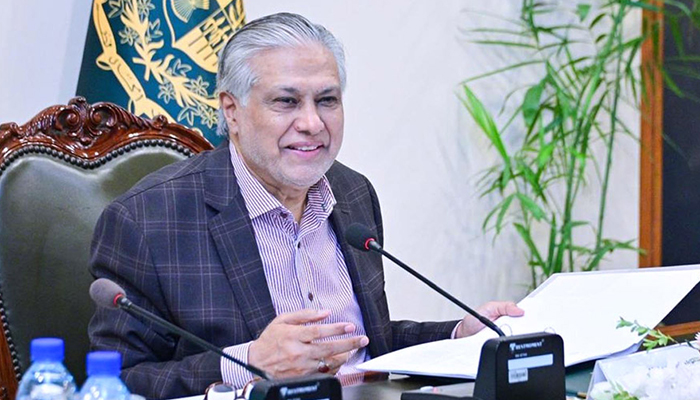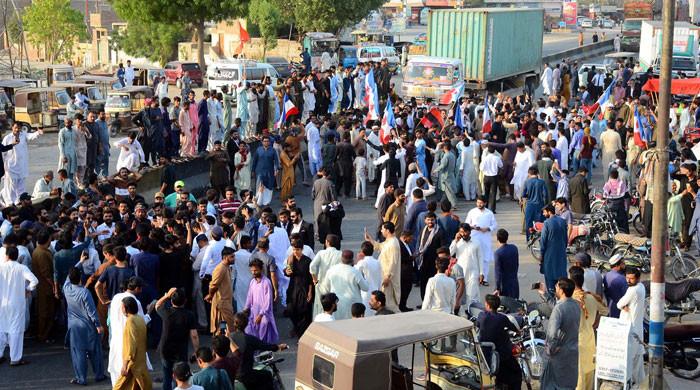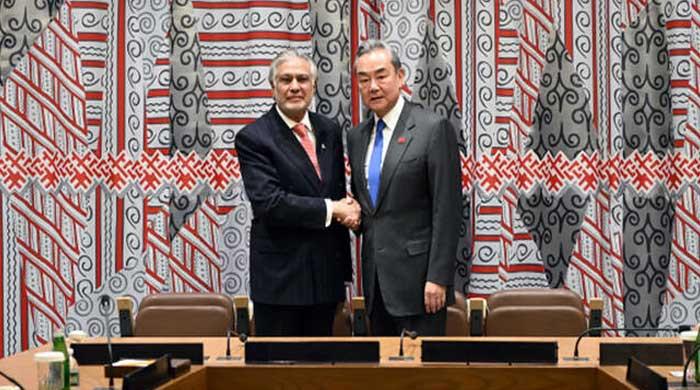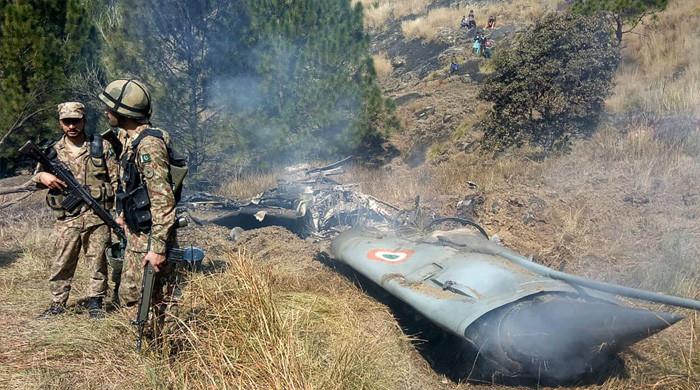Current state of affairs calls for strengthening civil-military ties: Ishaq Dar
Deputy PM says agenda of constitutional reforms "not new" as Charter of Democracy was signed in 2006
October 01, 2024

- Deputy PM says agenda of constitutional reforms not new.
- PTI founder, Fazl agreed to Charter of Democracy in 2006: Dar
- "Govt agreed with Fazl by halting parleys on constitutional changes".
Deputy Prime Minister and Foreign Minister Ishaq Dar has called for strengthening ties between the civil and military leaderships for national stability in the light of country's current state of affairs.
"The country's situation demands better civil-military ties," Dar said in an interview on Monday.
Speaking about the proposed constitutional amendments that remain a bone of contention between the political actors in the country, the deputy PM said that the agenda of constitutional reforms is not new as the Charter of Democracy was signed in 2006.
The points pertaining to judicial reforms were a part of the charter, he added.
Dar went on to say that the Pakistan Tehreek-e-Insaf (PTI) founder Imran Khan and Jamiat Ulema-e-Islam Fazl's Maulana Fazlur Rehman also agreed to the Charter of Democracy back then.
Moving on to the Centre's efforts to woo the seasonal politician on the proposed constitutional package, the deputy PM said that the government agreed to Fazl's stance by halting the consultations on the matter.
Dar expressed his unawareness regarding Irfan Siddiqui's announcement of a "final date" on the constitutional changes.
The government has been pushing the proposed constitutional package amid speculation about a potential extension in the tenure of Chief Justice of Pakistan (CJP) Qazi Faez Isa, who is set to retire in October this year, following the PTI's request last month for the early issuance of a notification regarding the appointment of the next top judge.
Despite claims of securing the "magic number" needed to push the bill through, the government failed to table the judiciary-centric amendments — possibly including the establishment of a separate constitutional court — in parliament and postponed its move indefinitely.
The ruling coalition left no stone unturned to seek Fazl's support, with leaderships of the Pakistan Muslim League-Nawaz (PML-N) and the PPP holding a flurry of meetings with the cleric, but to no avail.
To pass the constitutional amendments, the government is short of 13 votes in the National Assembly (NA) and nine in the Senate.
Speaking about taking PTI into consideration, he said that the government could have engaged in negotiations with the Imran Khan-founded party if they hadn't been involved in the May 9 riots.
Moreover, he stated that the Article 63(A) decision "should be fixed if it was wrong".
The deputy PM further stated that no decision in the PML-N is taken without the permission or consent of party President Nawaz Sharif. "Even PM Shehbaz Sharif follows the directives of Nawaz."











